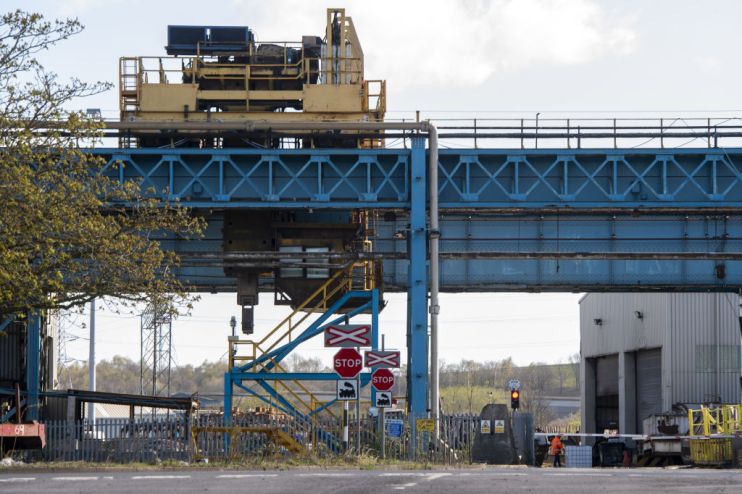UK extends China steel tariffs for another two years

The UK has moved to extend steel tariffs on China and other countries for a further two years in a move that could set up a row with the World Trade Organisation (WTO).
The decision was made after the government decided that the trade barriers were needed to protect the UK steel industry from cheaper overseas imports.
International trade secretary Anne-Marie Trevelyan told MPs today that “we have decided it is in the vital public interest that government acts to protect the steel sector” in a move that may put the UK in violation of WTO rules and international law.
“Given the broader national significance of this strategic industry and the global disruptions to the energy market and supply chains the UK currently faces, we have concluded it is in the economic interests of the UK to maintain these safeguards to reduce the risk of material harm if they were not maintained,” she said.
It comes after Boris Johnson’s former ethics adviser Lord Christopher Geidt resigned due to the government’s impending decision to extend the tariffs.
He told The Sunday Telegraph that the decision was “simply one example of what might yet constitute deliberate breaches by the United Kingdom of its obligations under international law”.
Trevelyan said herself today that the decision “departs from our international legal obligations under the relevant WTO agreement”.
Her announcement means that five different types of steel – including tin mill products and merchant bars – will be subject to import quotas and tariffs until 30 June.
This goes alongside a further 10 categories of steel – such as gas pipes, railway materials and welded tubes – which were already subject to the trade barriers.
This will mean that the steel industries in countries such as China, Turkey, South Korea and India will face further barriers on their UK exports.
However, China is the most affected by the move.
The decision comes after trade watchdog the Trade Remedies Authority (TRA) originally said an extension of the tariffs were not justifiable for the UK, before it changed its guidance after the Department for International Trade (DIT) adjusted the parameters of its probe.
Sam Lowe, trade expert at Flint Global, told the BBC that the UK will likely face legal challenges from affected countries.
“I think it’s quite probable the UK is in breach of its international obligations,” Lowe said.
“There is a large swathe of evidence produced by the government’s own body saying it’s not justifiable in the UK context. Probably another country will look at that and say ‘well let’s think about bringing a challenge’.
“We’ll only find out if the UK is compliant with its obligations or not following a challenge and the result of any dispute.”
Labour is supporting the government in its decision.
Shadow trade secretary Nick Thomas-Symonds said: “The extension of safeguards will come as a welcome relief to the steel sector and it is not anti-competitive to provide a level playing field for our steel industry.
“Labour backs our steel communities up and down the country, our steel sector is foundational for the economy. We must support it now and as we transition to net-zero.”